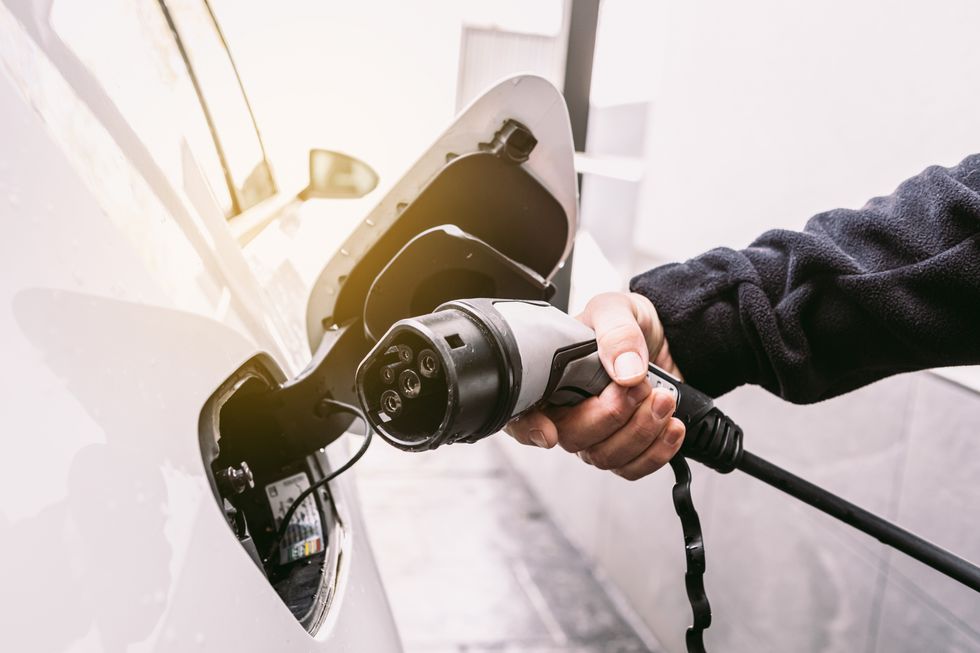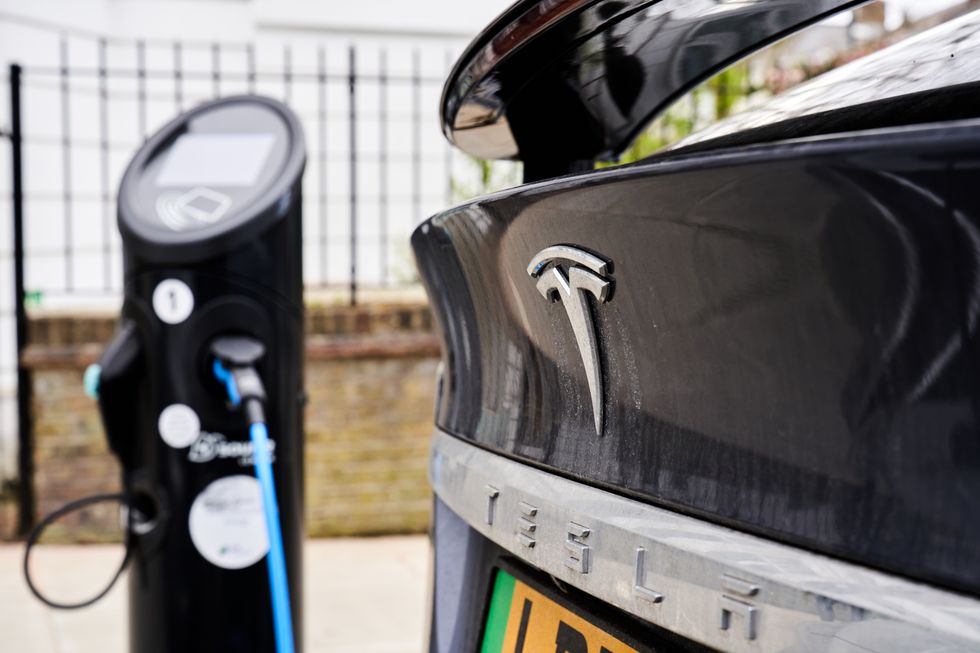Electric car breakdowns from battery issues at record low with range anxiety to be 'a thing of the past'
There are set to be 300,000 public EV charging points across the UK by 2030
Don't Miss
Most Read
Trending on GB News
The number of electric cars breaking down after running out of battery has reached a record low, according to new data.
Just 2.3 per cent of all electric vehicle callouts in the year to the end of October were as a result of batteries having limited or no charge, AA research found.
This is further evidence that electric vehicle owners are becoming more aware of their batteries and the range of their cars.
In comparison, 8.3 per cent of AA callouts in 2015 were due to low or empty batteries, with numbers dropping to 4.3 per cent in 2021.

The AA expected battery breakdowns to fall to one per cent
GETTY
The AA directly attributed the decrease in breakdowns to the growth of the public charging network, with more than 53,000 chargers around the country.
Data from Zapmap suggests that the UK will see the installation of 100,000 EV chargers by 2025, with the Government confirming that the UK is still on pace to see 300,000 chargers by the end of the decade.
Drivers are also becoming more aware of electric cars and how they operate, with the overall range of EVs constantly improving.
The company has predicted that the overall number of total callouts for a loss of battery to fall to around one per cent in the near future.
This would match the number of callouts for people running out of petrol and diesel on an annual basis.
The AA also suggested that range anxiety would become “a thing of the past” with drivers having more confidence in the public charging network and the range of the vehicles.
Edmund King, president of the AA, said: “There are still lots of myths being pedalled about EVs running out of charge on almost every long journey. At the AA we have the evidence to show this is just not the case.
“It is important that all drivers have accurate information, see improved infrastructure and they are given incentives to switch when they are ready to do so.
“Our polling shows that drivers generally aren’t hostile to EVs but they are hesitant to switch. This is not surprising as the combustion engine has been with us for well over 100 years.
“Once drivers have made the switch they will not look back.”
The AA attended 83,000 callouts for electric vehicle owners in the 12 months to the end of October.
The most common reasons were tyre issues (21.5 per cent), problems using a charger (19.8 per cent) and the 12v battery (16.8 per cent).
Electric cars have become far more popular in recent years with the upfront cost of the vehicle falling, incentives from car brands remaining on the market and the reliability of public chargers.
Research from the Society of Motor Manufacturers and Traders (SMMT) found that 16.3 per cent of all new cars purchased in the first 11 months of the year were EVs.
LATEST DEVELOPMENTS:

There are more than 53,000 chargers around the UK
PA
While this only represents a small increase compared to the same period in 2022 (15.1 per cent), sales of petrol and diesel vehicles are not as strong as they once were, with drivers starting to embrace electric.









